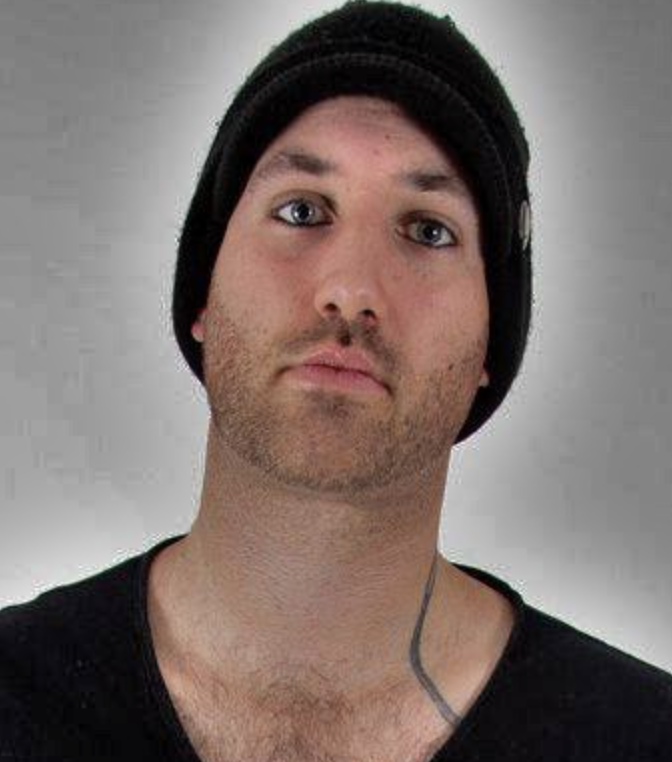The success of this summer's Outbreak and Supersonic festivals mean a line has now been drawn in the sand: no longer can heavy music festival bookers utter the lie "We would book more women/people of colour, but there aren’t any”
There was much more to Outbreak and Supersonic than white men with guitars, and the UK festival scene now feels vital and vibrant again

Select the newsletters you’d like to receive. Then, add your email to sign up.
You are now subscribed
Your newsletter sign-up was successful
Want to add more newsletters?
This summer, there was a quiet revolution within the UK festival scene, with line-up posters for some of the most respected heavy music weekenders populated by names never before seen on bills serving our community.
In a perfect world, this would not be anything new, unusual or radical. One might imagine that festival line-ups would reflect the vibrant, joyously chaotic, fast-moving nature of the heavy music world, and be constantly regenerating and evolving, but we all know that’s not been the reality of the situation. Instead, as regular as clockwork, festival line-up announcements have been as familiar as the most iconic Metallica, Maiden, Slipknot or Slayer riffs, with the same faces, the same styles and the same bookings year in, year out, making the likes of Download and Bloodstock seem cosy, warm and welcoming for festival vets and festival virgins alike.
Obviously, there's a simple, inarguable logic to booking the likes of Megadeth and Deftones and Disturbed year after year: these are legendary bands with stellar back catalogues and legions of fans, and if the system isn’t broke, you cry, why try and fix it?
It’s a fair point, and no one should be suggesting that legacy artists have no place within the festival market. But summer 2023 should serve as a real eye-opener to bookers that there are genuine alternatives to endlessly booking four white blokes in black T-shirts playing radio-friendly riffs.
The first, and most obvious, port of call serving as an alternative to the status quo would be this year's Outbreak Festival in Manchester. After 10 years of giving us almost exclusively nothing but hardcore, the bookers of a festival with obvious ambitions to expand realised that, as exciting and fecund as the punk scene is right now, if you want to tempt 10,000 people to spend the weekend with you, you can’t rely solely on bands capable of pulling 500 people at club shows as your headline artists. As a result, in came one of the most eclectic and diverse lineups the UK has ever seen. Seemingly curated with the mindset “What's popular within skate culture?”, headliners at Outbreak included the smooth modern hip-hop of Denzel Curry, and the experimental, industrial rap of Death Grips. Beneath them, the bill was peppered with some of modern hip-hop's most exciting names: Earl Sweatshirt, Wiki, Armand Hammer and Meechy Darko, rubbing shoulder with punk and hardcore’s finest, from Soul Glo and Code Orange to Converge and Jesus Piece. And, quite honestly, it was glorious, one of the best weekends of the decade so far.
Predictably, when the bill was revealed, there was some online outrage initially, with people claiming that Outbreak had 'sold out' the scene, an utterly ridiculous suggestion to anyone with even a basic knowledge of hardcore and skate culture's founding principles, where hip-hop has always been fully embraced. But what was heartening to see, was just how little that online ire translated into the real world. For anyone attending Outbreak - and there were more people at Outbreak 2023 than had ever been to the festival before - the sense of anticipation before Death Grips arrived, and then the crazy, manic reaction to their brutally pummelling set, will live long in the memory. All weekend in fact; it was circle pits one minute, hands in the air next, everyone embraced, everyone championed, everyone welcome. Beautiful.
It was a similar story more recently at Supersonic Festival. An event long known for crafting unique and diverse bills of noisy music, this year the respected Birmingham festival's more typical bookings of artists such as Godflesh and Hey Colossus were complemented with Backxwash’s alt-horrorcore rap, Divide and Dissolve’s hypnotic doom and the expressive post-punk of Taqbir. These are artists featuring people of colour, and either female or non-binary members, and all are radically different in sound, yet all share the same thirst for creating angry, noisy, brilliant music, and, crucially, all three played sets that were among the most talked-about of the entire weekend.
Sign up below to get the latest from Metal Hammer, plus exclusive special offers, direct to your inbox!
The upcoming Misery Loves Company festival in Bristol adds further weight to the argument, with their commitment to the creation of a diverse bill leading to 50% of the performers being female and non-binary artists. With Heriot, Witch Fever, Yonaka and Mimi Barks just a handful of the exciting names playing, it’s also clear that this is a bill put together first and foremost on musical merit, rather than the box-ticking exercise some cynics may have labelled it.
And that’s a key point. The summer of 2023 should serve as a line in the sand for UK festival bookers, because it’s now unquestionably been proven that you can curate a diverse, eclectic, inclusive festival bill, and people who love heavy music will pay good money to see it. Because they know that our scene is currently blessed with an embarrassment of riches from every perspective imaginable, and that these artists are making some of the most exciting music around.
Admittedly, it’s clear that, say, Backxwash or Witch Fever are not sizeable enough to headline Download... not yet anyway. This isn’t a suggestion that they step up ahead of Slipknot, just one to express how much they deserve to be on these bills, and that they are all just as representative of where the heavy music scene is today as the beloved Iowan legends. That tired old excuse “We would book more women/people of colour, but there aren’t any” should never be uttered ever again by anyone involved with curating heavy music festivals. As an argument it’s dead and we’ve just had the summer that killed it. Here's to some genuine change, and fabulous music, coming our way in 2024.

Stephen joined the Louder team as a co-host of the Metal Hammer Podcast in late 2011, eventually becoming a regular contributor to the magazine. He has since written hundreds of articles for Metal Hammer, Classic Rock and Louder, specialising in punk, hardcore and 90s metal. He also presents the Trve. Cvlt. Pop! podcast with Gaz Jones and makes regular appearances on the Bangers And Most podcast.
